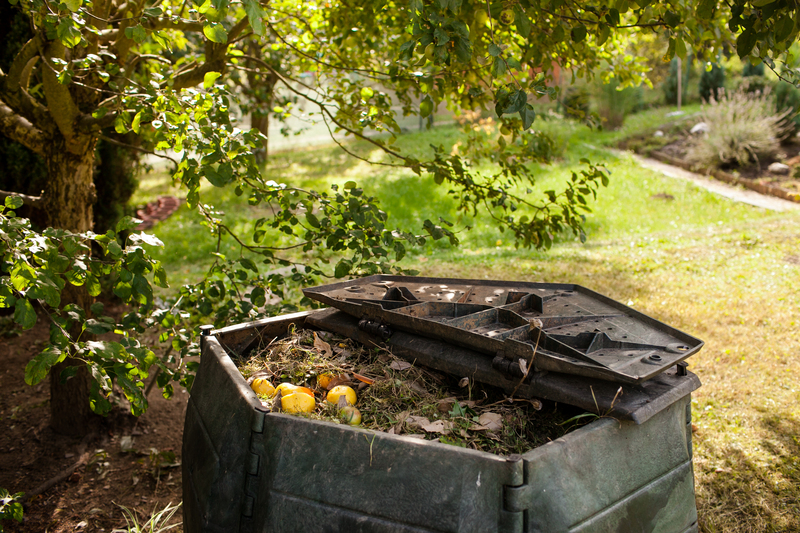Compelling Reasons to Support Glass Recycling Efforts
In today's rapidly evolving environmental landscape, the importance of sustainable practices cannot be overstated. Among the most impactful actions individuals and communities can undertake is supporting glass recycling efforts. This comprehensive guide will delve into the myriad reasons to champion glass recycling, highlighting its environmental, economic, and community benefits.
The Environmental Imperative of Glass Recycling
Reducing Landfill Waste
One of the most significant benefits of glass recycling is the dramatic reduction in landfill waste. Glass is a non-biodegradable material, meaning it does not decompose naturally over time. Without recycling, glass bottles and jars can persist in landfills indefinitely. By supporting glass recycling efforts, we can significantly reduce the load on landfills, preserving these areas and mitigating environmental hazards.
Conserving Natural Resources
Glass recycling plays a crucial role in conserving natural resources, including sand, soda ash, and limestone. By reusing existing glass materials, we diminish the need for new raw materials, thereby conserving these precious resources for future generations.
Diminishing Carbon Footprint
The process of manufacturing new glass from raw materials requires substantial energy, contributing to a high carbon footprint. Conversely, recycled glass, known as cullet, melts at a lower temperature, which reduces energy consumption and lowers greenhouse gas emissions. This, in turn, helps combat climate change, making glass recycling a critical component of environmental stewardship.

Economic Advantages of Glass Recycling
Job Creation and Economic Growth
Supporting glass recycling efforts can result in job creation and economic growth. Recycling facilities require workers for sorting, cleaning, and processing glass materials. By enhancing the demand for recycled glass, we can increase employment opportunities and stimulate economic development within communities.
Cost-Effectiveness
Recycling glass is generally more cost-effective than producing new glass from raw materials. Energy savings achieved through recycling translate to lower manufacturing costs. Consequently, the glass industry can offer competitively priced products, benefiting both businesses and consumers.
Community and Social Benefits
Encouraging Responsibility and Awareness
Promoting glass recycling fosters a sense of responsibility and environmental awareness among community members. Educational programs and recycling initiatives can inspire individuals to adopt sustainable practices, positively influencing broader societal attitudes towards environmental conservation.
Enhancing Community Health and Safety
Glass recycling efforts enhance community health and safety by reducing the volume of waste in local areas. Less waste means fewer opportunities for harmful chemicals and pollutants to leach into the soil and waterways, promoting a cleaner and safer environment for all inhabitants.
Thriving Industry and Market Demand
The glass recycling industry is thriving, driven by increasing market demand for sustainable products. Many manufacturers and businesses now prioritize recycled materials to meet consumer expectations for corporate environmental responsibility. Supporting glass recycling strengthens these market trends, encouraging greater investment in sustainability practices.
- Robust Market for Recycled Glass: Industries ranging from automotive to construction increasingly rely on recycled glass to meet production demands, underscoring the importance of a steady cullet supply.
- Innovation in Glass Recycling: Continuous advancements in recycling technologies enhance the quality and efficiency of recycled glass, driving further investment and innovation within the sector.
Supporting Policies and Legislation
Countries worldwide are recognizing glass recycling's importance, implementing policies and legislation to encourage its adoption. These laws often include incentives for businesses and individuals to recycle glass, creating an environment conducive to increased recycling activity.

Actionable Steps to Support Glass Recycling
The Community's Role in Glass Recycling
Communities can take several straightforward steps to bolster glass recycling efforts. From participating in local recycling programs to investing in community education initiatives, grassroots movements can meaningfully contribute to sustainability objectives.
Individual Action and Responsibility
Individuals also play a vital role in the success of glass recycling efforts. Here are some actionable steps you can take:
- Educate Yourself: Understand the types of glass that are recyclable and the benefits of doing so.
- Participate in Local Programs: Engage in community efforts or initiatives aimed at enhancing recycling outcomes.
- Advocate for Policies: Support policies and programs that prioritize recycling at both the local and national levels.
Implementing Glass Recycling At Home
Implementing glass recycling at home is a straightforward yet impactful action. Establish a designated recycling container for glass materials and ensure family members understand the importance of sorting and disposing of waste responsibly.
Conclusion: Why Supporting Glass Recycling Matters
Ultimately, supporting glass recycling efforts is a critical step towards fostering a sustainable future. The environmental benefits, economic advantages, and community well-being gained from glass recycling are far-reaching and transformative. By choosing to support such efforts, individuals and communities can actively participate in the planet's conservation, contributing to a cleaner, healthier, and more sustainable world.
Embrace the challenge and responsibility of enhancing glass recycling initiatives. Every glass bottle recycled is a victory for the environment, a boon for the economy, and a step toward a more sustainable society.
Join the movement today and make a lasting impact by advocating for and actively participating in global glass recycling endeavors.